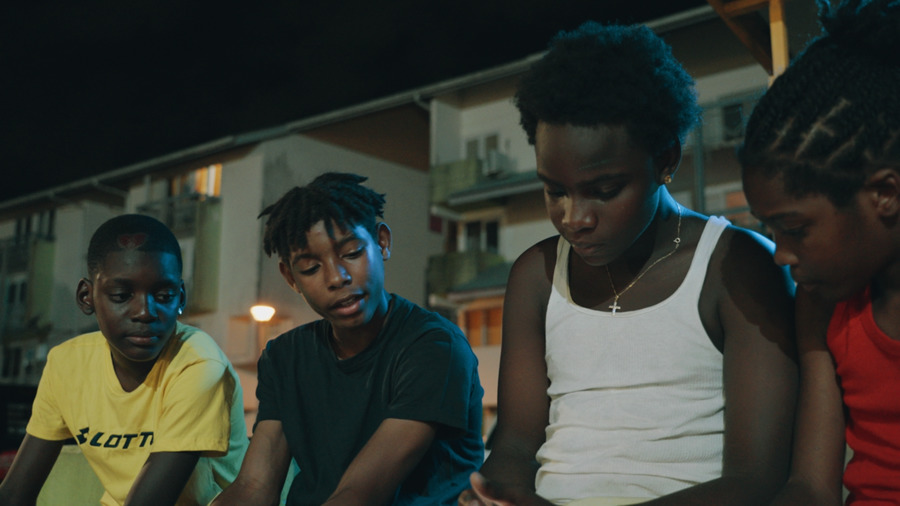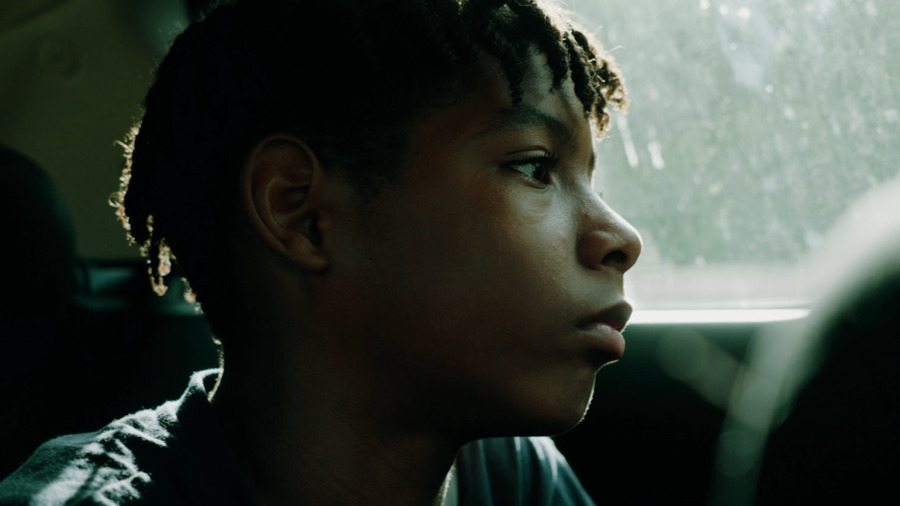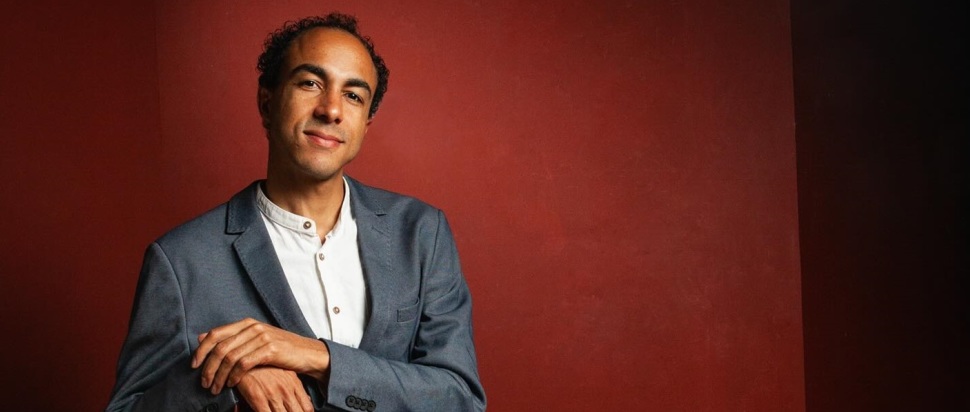Alchemy 2025: Maxime Jean-Baptiste on Kouté vwa
Maxime Jean-Baptiste returns to Alchemy Film and Moving Image Festival with Kouté vwa, a hybrid documentary concerned with familial grief, coming-of-age and the shadow of colonialism in French Guiana. He talks to us about blending fact and fiction
“It's an illusion I had when starting this film – that it's going to be a catharsis, that it's going to be therapy for them to heal their wounds.” Maxime Jean-Baptiste is discussing his feature film Kouté vwa (Listen to the Voices), a powerful depiction of grief and trauma that fictionalises a real family tragedy. In 2012, the director’s cousin, Lucas Diomar, was killed in an act of gang violence. Over the past several years, Jean-Baptiste has explored this subject through several iterations of short films and performance, eventually arriving at a hybrid documentary work that audiences can see at this year’s Alchemy Film and Moving Image Festival.
“Originally it was classical interview, more documentary, reportage,” explains Jean-Baptiste. “But Nicole [Lucas’ mother] and I were frustrated by this format. In 2022, Melrick [Lucas’s young cousin] was there and, I don't know, he has a sort of freshness, this natural way of being with the camera that was striking. From there, I decided to rewrite the film with my sister Audrey, as a sort of fictionalisation of the reality, because it could be clearer in terms of intention and in terms of imagination.”
As such, the film depicts a summer holiday in French Guiana for Melrick, who is visiting his grandmother, Nicole, from Europe. There he also spends time with Yannick, Lucas’s best friend, who is still haunted by the night of his death. Jean-Baptiste explains that his protagonists “were more at ease having to play their own role than being the pure subject of classic documentary.”

Kouté vwa (Listen to the Voices)
The process of arriving at this hybrid approach was a long one, and one that allowed the subjects to take the lead during filming and be aware of the dangers of such reenactment. “It required a lot of time, a lot of patience,” says Jean-Baptiste, “and also lots of hanging out. It’s such an intense, traumatic story, so we needed to take time with the protagonists, to take care of them. By telling this story again, you can reopen what destroyed you, so it can be dangerous.”
This is something the filmmaker has spoken about before, the sometimes misguided sense that a documentary offers an inherently therapeutic framework for subjects to work through their trauma. “It's a huge responsibility,” says Jean-Baptiste. “I've seen the damage even in my own process. Sometimes we got so close to destroying something – to destroying a relationship, to destroying people, to destroying a place. When you come in with such a subject as murder, it doesn't help a place that might have lots of problems, but is trying to continue with living. This is why I speak about the violence of making a film. I'm pessimistic, perhaps, but most of the time, when films go to a festival saying they helped the people, I don't think it's the full reality.”
Jean-Baptiste hoped to allow his subjects the room to explore their fictionalised selves in their own way and at their own pace. “There was no dialogue written,” he says, “so that was the point of departure. With Audrey, I wrote the scenario but we wanted their words, their way of saying things. As I know them a lot, I could trust them. So, what was written in the kitchen scene was only the actions. It was through themes that we would discuss a scene with them. So, the shooting itself was quite fluid, you know? Sometimes we’d even get lost, and the crew would be a bit like ‘Where are we going, Maxime?’ But this is part of the experience of making this story with them.”

Kouté vwa (Listen to the Voices)
This allows Kouté vwa to include some truly poignant moments and remarkable conversations – not least one in which Nicole describes the experience of encountering the man who killed her son after his release from prison.
Such fluidity isn’t necessarily this filmmaker’s typical comfort zone; Jean-Baptiste has garnered a reputation in recent years for several thought-provoking archival films. “Yeah, it's two totally different processes. When working with the archive, almost everything is controlled – I have the image and I am in front of the computer and I am doing everything except the recording of the voiceover, but even that is also written. Everything is kind of set and controlled as a plan.”
The experience of being out and working directly with subjects on Kouté vwa and taking the lead from them was completely alien, but clearly rewarding. “I learned a lot, actually,” says Jean-Baptiste. “I was also working with a team – I had a DoP, sound engineer... I had to let go of the image and the sound, which was hard, but it helped me a lot.”
Has the experience been one he wants to repeat going forward? “I think that for the next film I am now planning to do, I will use this way of working – which is to let go,” he confirms. “Sometimes there's something quite natural about that.”
Kouté vwa has its UK premiere at Alchemy Film and Moving Image Festival on 3 May
Alchemy takes place in Hawick, 1-4 May; full programme at alchemyfilmandarts.org.uk
